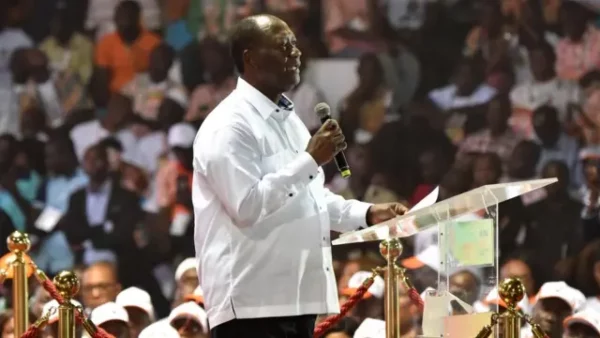The designation of Alassane Ouattara on June 22, 2025 for a fourth presidential term is part of a political continuity strategy of the Rally of Houphouëtists for Democracy and Peace (RHDP), but also raises questions about democratic alternation in Ivory Coast. At 83 years old, the outgoing president seems to rely on his aura as the “father of stability” in a West African sub-region undergoing political and security reconfiguration.
Facing institutional reconfigurations in the Sahelian region, the Ivorian case appears as an exception of relative stability. While the Alliance of the Sahel States (AES) – including Mali, Burkina Faso, and Niger – moves away from the ECOWAS community framework in favor of military and sovereignist regimes, Abidjan seeks to establish itself as a pole of stability, respectful of institutions, even if the notion of alternation remains debated.
This positioning also contrasts with Senegal, where the new president Bassirou Diomaye Faye, from a reformist movement that came to power in March 2024, symbolizes a generational and peaceful political alternation, praised internationally. Similarly, in Benin, the governance of Patrice Talon, who has just announced that he will not seek a third term, follows a trajectory of modernizing the state apparatus with a gradual renewal of elites.
In this context, Ouattara’s candidacy illustrates both the will to stem the dynamics of rupture that shake the sub-region, but also a form of strategic immobility, where power remains concentrated in the hands of a small circle.
Undeniable economic performance
Economically, the choice of Alassane Ouattara aims to prolong a trajectory of solid growth, initiated since the end of the post-electoral crisis in 2011. The Ivorian economy, a pillar of the UEMOA, remains one of the most dynamic in sub-Saharan Africa, with projected growth of over 6.5% in 2025, driven by structural investments and an ambitious industrial strategy.
In an increasingly fragmented regional environment – with AES states facing the disintegration of their formal economies, sanctions, or diplomatic isolation – Ivory Coast appears as a haven for foreign capital and major pan-African infrastructure projects. Ivorian economic leadership has also strengthened in regional bodies.
This situation gives Abidjan a strengthened strategic role in the West African economic architecture, especially as Senegal, despite a successful political alternation, is engaged in a phase of institutional transition and economic orientation still subject to negotiation, notably with the IMF. In short, for many investors, Ouattara’s re-election represents a reassuring form of continuity, in contrast to the uncertainties weighing on its neighbors.
In a regional context disrupted by military ruptures in the Sahel, democratic reforms in Dakar, and liberal ambitions in Cotonou, Ivory Coast is betting on stability through the maintenance of the established order. The choice of Alassane Ouattara reflects a complex balance between prudent management, experience capital, and lack of renewal. While this positioning may attract markets in the short term, it nevertheless postpones deep reforms and raises the central question: can political stability still do without democratic alternation?


